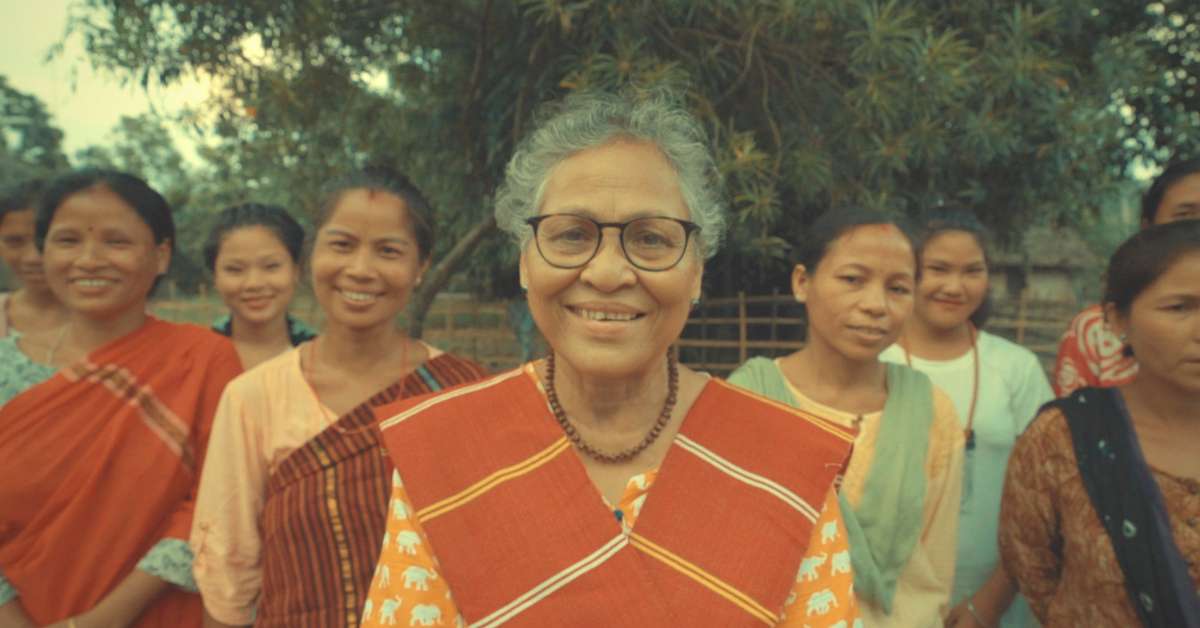A small village in Nagaland’s Phek district, Chizami is relatively little known across the country, but in terms of socioeconomic reforms and environmental protection, it has silently carved a niche for itself for over a decade now, with a unique model of development that regularly finds visits by youth from Kohima and neighbouring villages for internships.
Focusing on health issues, women’s rights, community programmes, food security, and environmental conservation, what makes this development model extraordinary is that economically marginalised women put together their heart, blood and sweat in the village’s transformation, something that is deeply entwined with the traditional practices of the region.
So, in a tiny village with about 600 households and a population of 3,000, what has been the catalyst that triggered the winds of change in Chizami?
The seeds of socioeconomic and environmental reform in Chizami were planted back in the mid-1990s, when Monisha Behal, a women’s rights activist and founder of the North East Network (NEN), landed in Nagaland with the aim of improving women health standards in the state.
Noticing the collective strength of women in the Naga society, Behal decide to use it to do something about the deplorable health and sanitation environment that prevailed in the state at that time.
However, it was only after two years that Behal came across Seno Tsuhah during a workshop on organization building, reproductive health, tackling alcoholism and community development in Pfutsero town.
Seno was a representative of the Chizami Women’s Society (CWS), who worked as a teacher at the government primary school in the neighbouring village of Sumi. Their interaction blossomed into a partnership that not only set up the Nagaland chapter of the NEN but would also go on to change the fate of Chizami.
This had also been a period when Nagaland was finally coming out of its conflict-stricken status quo after six long decades. Behal and Seno knew that the main challenges ahead were to engage and empower the youth to bring about socio-economic change.
Initially focusing on improving health, sanitation and nutrition, they then started skill enhancement programmes such as bamboo craft, food processing, organic farming, rooftop water harvesting and low-cost sanitation, besides organising discourses on topics like governance, women empowerment and human rights issues.
A landmark achievement had been when after eight years of struggle, the women in the village were finally granted equal pay as men in unskilled farm labour by the village council in 2014 and two years later, two women were inducted as members in the Enhulumi village council.
Taking the spirit of women empowerment even further, Behal flagged off Chizami Weaves, a decentralised livelihood project to create sustainable livelihood opportunities for the marginalised women in the district as well as preserve the unique textile tradition of Nagaland.
Join Monisha’s journey and show her your support.
Unable to view the above button? Click here
Starting with seven weavers, Chizami Weaves today has a strong network of more than 300 women in Chizami and 10 other villages in Phek district, whose handworks such as stoles, cushion covers, belts, bags, mufflers, coasters, table mats and runners are now shipped to emporiums in New Delhi, Kolkata, Bengaluru and Mumbai.
The project has also helped bring in new perceptions of gender justice to women. Not only do the weavers support their families through their weaving, they are also making their presence felt within their homes and in community’s public spaces by raising their voices on issues of health, livelihood, and environment.
Today, Chizami is at the forefront of championing women’s rights, supporting sustainable livelihood and restoring traditional food systems and agricultural practices in Nagaland. The NEN resource centre in Chizami, is a beacon of development and change in the state, all thanks to Monisha Behal, whose persistence and conviction helped change the fate of an entire village.
(Edited by Vinayak Hegde)
Like this story? Or have something to share? Write to us: contact@thebetterindia.com, or connect with us on Facebook and Twitter.
NEW: Click here to get positive news on WhatsApp!
If you found our stories insightful, informative, or even just enjoyable, we invite you to consider making a voluntary payment to support the work we do at The Better India. Your contribution helps us continue producing quality content that educates, inspires, and drives positive change.
Choose one of the payment options below for your contribution-
By paying for the stories you value, you directly contribute to sustaining our efforts focused on making a difference in the world. Together, let's ensure that impactful stories continue to be told and shared, enriching lives and communities alike.
Thank you for your support. Here are some frequently asked questions you might find helpful to know why you are contributing?


